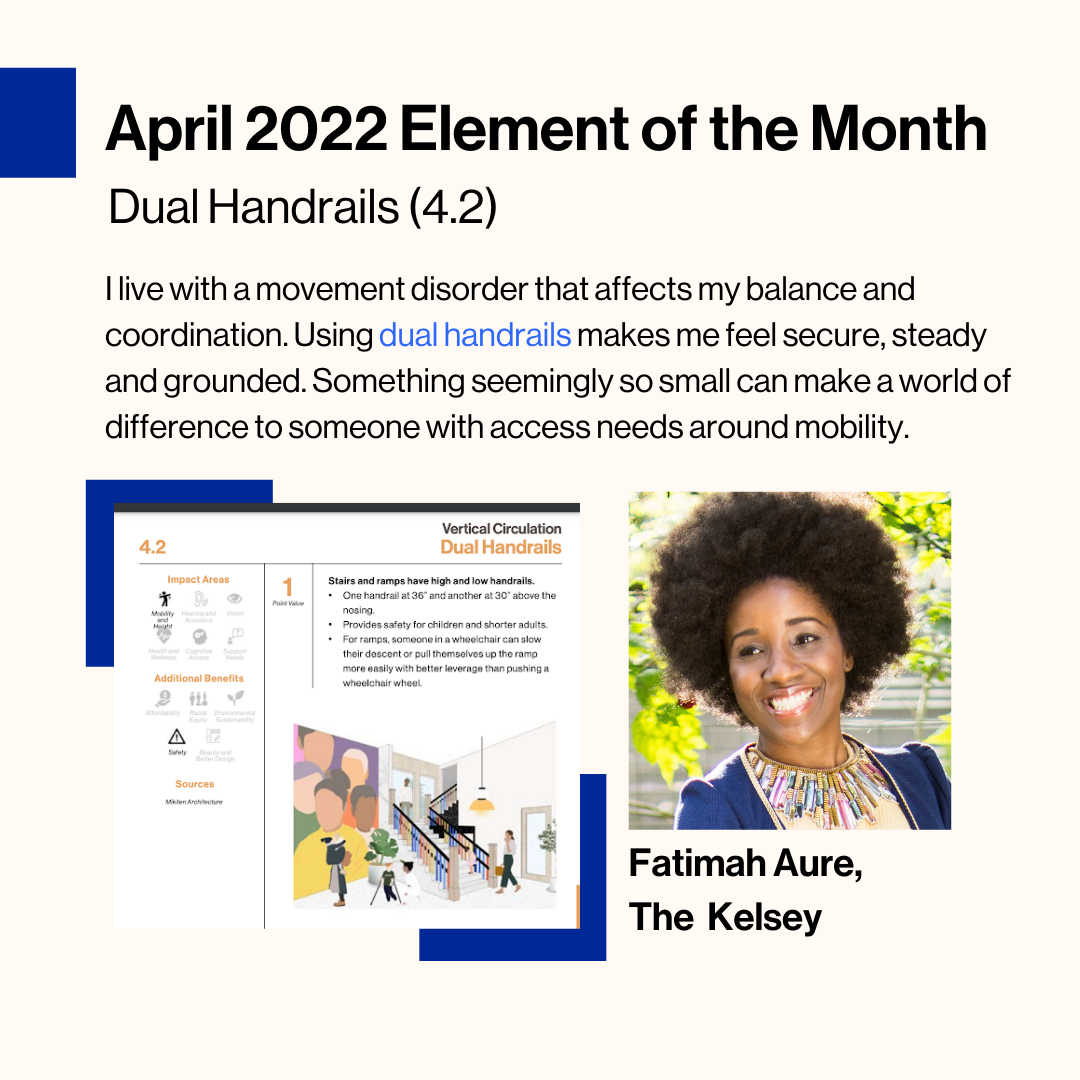When you apply elements from The Housing Design Standards for Accessibility and Inclusion you can support housing stability in many ways. Whether supporting a person with mobility disabilities like Fatimah shares, helping someone age in place, or making a space more usable and safe for all people. Learn more about Fatimah, who manages the Housing Design Standards work at The Kelsey, and an element she values: Dual Handrails.
Fatimah Aure / The Kelsey
Element: Dual Handrails (4.2)
Design Category: Interior Spaces
Impact Area: Mobility and Height
All building staff and personnel receive training in disability rights, inclusion, accessibility, and equity prior to building occupancy or within first 60 days of onboarding.
- Includes all management, resident-facing, and maintenance staff
- Provides ongoing professional development opportunities
Impact Area(s): Mobility and Height
Why is this element important to you, personally or for the project?
I live with a movement disorder that affects my balance and coordination. Using dual handrails makes me feel secure, steady and grounded. Something seemingly so small can make a world of difference to someone with access needs around mobility. (quote suggestion on photo
What recommendations would you make to someone designing a disability-forward housing project?
These universal standards should be used on every new housing project! Truly an example of designing with intention around access needs, everyone benefits. Dual handrails are first and foremost for mobility accessibility but they can help someone recovering from an injury, a parent walking with a wobbly toddler or a senior citizen needing a little stability on a set of stairs. The positive impact is multifaceted!
